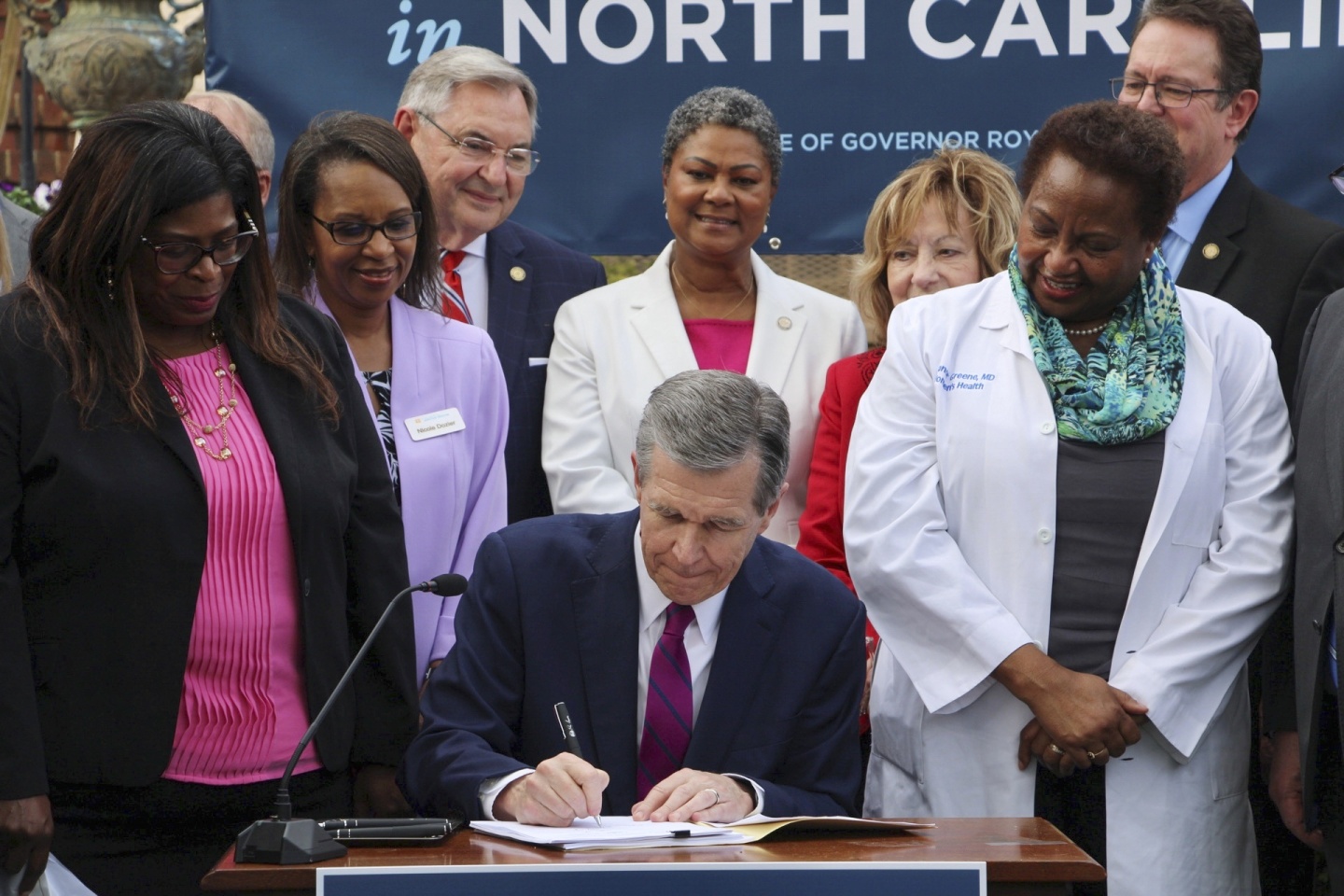This week, North Carolina became the fortieth state to expand Medicaid through the Affordable Care Act. House Bill 76 is projected to increase coverage to hundreds of thousands of people, and pave the way for billions of dollars in federal government support.
To understand how this new law will impact North Carolinians, WFDD’s David Ford spoke with Mark Hall. He directs the Health Law and Policy Program at Wake Forest School of Law.
During the Obama administration, Hall conducted a series of studies on the Affordable Care Act’s implementation including the pros and cons of Medicaid expansion. He provided testimony to the Senate Finance Committee and served on an advisory panel that helped implement part of the law. He says the new law will provide coverage to more than 600,000 people in North Carolina.
Interview Highlights
On the coverage gap:
So, the basic gist of it is that currently, Medicaid covers people who are poor, or near poverty only if they fit into certain categories, such as if they're a child or pregnant woman or to a limited extent a parent. This bill expands Medicaid to cover everyone who's near poverty. So it picks up all the additional people who the census data shows us are at or below this poverty line, who aren’t currently covered by Medicaid. And that adds up to 600,000. Because Congress assumed all states would expand Medicaid, the Affordable Care Act's subsidies for private insurance are not available to people below the poverty line. But when states like North Carolina opted not to expand Medicaid millions of people ended up stuck in a coverage gap. They earn too much to be on Medicaid, but too little to receive subsidized private insurance. It was a gap that was sort of accidentally created by states deciding not to expand.
On rural hospitals:
Rural hospitals struggle the most financially partly because they’re smaller but also because that’s where a lot of the burden of lower-income, uninsured people reside. And those hospitals are there to serve the entire community, so they’re picking up a lot of these uncompensated care costs for the uninsured, and all they have to fall back on oftentimes are these public programs. And so, that’s really a lifeline to these rural hospitals that otherwise are financially struggling and a good number of them have closed, and other ones have had to scale back to emergency treatment only, and some of them are on essentially life support and [Medicaid expansion] couldn’t come soon enough, and it’s certainly coming at a good time to keep them afloat.
On mental health:
First of all, Medicaid covers a broad range of necessary health-related services — not just going to the doctor, but mental health care, substance abuse treatment, things that are very pressing needs in society right now. As an added bonus, there's what's called a signing bonus. So states that expand this year receive an extra, in our case almost $2 billion from the federal government under COVID-related funding that will expire next year, but for now is available. And that COVID relief funding can be earmarked to special programs such as mental health care.
On concerns about Medicaid expansion:
Well, the only lingering concern I think is that somehow it'll end up costing the state more than was budgeted. But the fiscal experts, the analysts, and the economists have poured over this many times. They've also looked at a good number of other states over a good number of years, to see what the experience has been there and learned from that experience to really have a high degree of confidence that it's not going to be a budget buster. So the magnitude of that concern is greatly diminished from where it was, let's say eight years ago. Otherwise, it's, I think, having enough providers available — doctors, hospitals, nurses, specialist facilities — to meet these needs. And that's a problem that can only be solved by throwing money at it. We say let's not throw money at problems, but this is just supply and demand, and putting people into these positions isn't easily done, but you've got to start somewhere and this gives us the money to do that.
300x250 Ad
300x250 Ad
